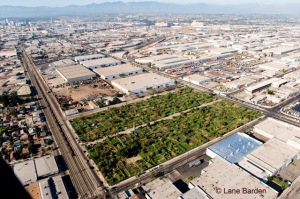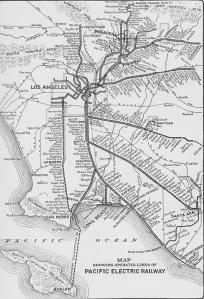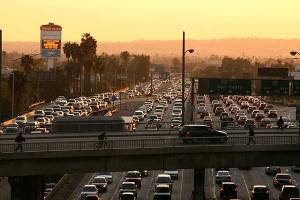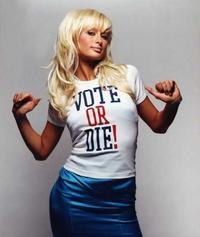I remember the Rock the Vote ads with Madonna when I just entered junior high. I didn’t quite understand what she was laughing or talking about, but the message was clear: I needed to vote. I asked my mom, who moved to the US twenty years ago at that time, to take me voting, but she admitted she wasn’t sure how it worked. I asked her if she ever voted. She looked up nostalgically and said she did once, when Reagan was in office. Besides, her English wasn’t so good; she didn’t want to make a wrong decision. I eventually found out later by bugging my math teacher this question (who had really bad coffee breath), that I couldn’t. Oh well. But reflecting on this over half a decade later, I watched the ad again on youtube, and realized that it probably will take more than Paris Hilton wearing a “Vote or Die” shirt and smugly pointing at herself. Instead of simply asking people to change their behaviors, and assuming their apathy, we must also investigate how existing public policies and institutions create barriers to inclusive public participation.
Archive for the ‘Public Square’ Category
Vote, dammit
November 19, 2009
Hungry for Food, pt2
November 13, 2009
Here’s some food for thought:
These points urge us to think critically about our food system and reassess how “hunger” is created. Indeed, the environmental, social, and economic harm our current food system creates urges us to rethink food (see my previous post). We must rethink not only what we eat, but how larger systems in place also influence the prioritization, production, and transportation of certain kinds of food. The way this system influences food has major impacts on all facets of our lives. We must lay the groundwork for a food system that can continuously innovate, sustain the environment, and ensure access and equity across all communities, especially those historically left behind. We can do this by creating an institution (you might notice by now that institution-building is a strong part of my thinking) that can not only bring together multiple stakeholders that operate our food system but also plan and re-tool it to meet a triple-bottom line.
The 1500 Mile Meal
November 1, 2009
In one of my earliest experiences at USC, I had the opportunity to learn about the struggle for food, and its implications in an urban environment. I was (and still am) a nerdy kid fresh out of the suburbs, and USC gave me the opportunity to participate in a service-learning program called SCitizen. I remember the volunteer list for the program included choices such as “Church painting, “Afterschool tutoring”, and “Ethnoscapes of Resistance- The Struggle of South Central Farms.” The name struck me, though I had no idea what it meant, and I had to take the trip. The centerpiece of the program was the farm visit. There, a farmer named Diego told me his story. South Central Farm was a space where his children could play with their friends, a place where the community came together to create something beautiful and productive, a place of empowerment where they could supplement their lives with extra food and income. But, it was also a place destroyed by violence. He told me about the deal that seized the farm from the community, the community’s protest, how he stood with his arms interlocked with friends, and how bulldozers trampled the farm, leaving the barren dirt before him. Meeting Diego filled me with basic questions about why and how poverty and inequality existed in the city, motivating my interest in urban policy (and the focus of this blog in general). In particular, I became fascinated with the way food, and the production and access to food, manifested in urban settings, often in harmful ways for working class people.

South Central Farms: Green Space amidst an urban desert
Nancy, Let’s Be Friends.
October 24, 2009
Dear Nancy,
As a fellow democrats (and Americans), eight years of Dubya have forced us to endure a lot together: $970 million dollar tax cuts for the richest 5%, a $236 billion surplus squandered down to a $490 billion deficit, the cost of oil skyrocketing to $100 a barrel, and, of course, the worst drop in our Stock Market since the Great Depression.
I think this makes us friends.
Traveling to Opportunity: A New Metropolitan Transit Vision
October 18, 2009
It’s hard to imagine a sprawled out, car-congested city like L.A. used to have one of the largest urban public transit systems, with neighborhoods connected through a vibrant network of red streetcars. These “red cars” played a tremendous role in bolstering urban vitality and linking people to places: to jobs, schools, friends, and opportunity.

L.A. Red Car System
Hungry for Transportation
October 11, 2009
Carpooling with a few friends to Korean barbeque the other day, I survived a few near misses with large buses full of weary-looking people staring back at me, sweating mothers with babies in strollers, and swerving and honking cars on the road. Driving in L.A. toughens you. Stuck in a mile-long congested stoplight, with our stomachs grumbling, my friend glanced resignedly at the bus that cut and zoomed in front of us and she joked, “Taking the bus here is scary.” I couldn’t help but laugh at the irony, me seat belted to her car. She smiled and turned to me, “Remember that time that guy hit on me on the bus in freshman year? We all waited by the dark bus stop for an hour, freezing to death, sticking out with our cardinal-and-gold shirts like stupid college students from USC.”

L.A. Traffic
Post-Post-Racial: Cities, Regions, and a 21st Century American Dream
October 3, 2009
Since President Obama’s election, many pundits have intensified their efforts to frame the world in “post-racial” narrative. In this narrative, the playing field is equal, as illustrated by the election of Obama, a multi-racial president, which, pundits imply, precludes any need to struggle for racial equality. Furthermore, individuals can be purely judged by the content of their character and the strength of their responsibility—not by the color of their skin. Indeed, when Obama pointed out the historical problem of racial profiling in the recent Henry Gates incident, Glenn Beck was quick to accuse the president of white racism, with “a deep-seated hatred for white people or the white culture” (Muwakkil 2009). Though this frame may satisfy many and be used with great political calculation by others, any look into our cities and regions shows the landscape of opportunity is far from equal among not only the different classes, but also races. Ironically, one of the major drivers of this inequity has been our beloved American Dream, and the public policies that fueled it—specifically, the dream that materialistically cherished a house in the suburbs with a white picket fence (Farrar 2008, Samuel 2001). This inequity harms all, even those who live far from it, and requires our nation to re-conceptualize our current policy approach to the cities, think regionally, and promote an economy of opportunity and possibility. We need a new paradigm for a 21st Century American Dream.
Beyond Irrationality: Reinvigorating Urban Policy for America’s Communities
September 26, 2009
In a recent post, Devon argued that the financial crisis was due to individuals not properly projecting future outcomes to gain short-term benefits. But the fact that people often do not do project their future outcomes is perhaps an issue itself worthy of investigation. Are people simply being irrational, or are there larger issues and structures at play?

An example of a bad marketing choice
Uniting or Dividing Citizens? Campaign Finance Law in Citizens United vs. FEC
September 14, 2009

Jacquie recently wrote a wonderful post on campaign finance reform, illuminating the currently debated Citizens United versus Federal Elections Committee case.
Although it’s not a ‘sexy’ issue compared to, say, climate change, campaign finance law has implications that can fundamentally shape the structure and direction of our nation’s politics. OpenPolitics predicts that Citizens United, who is advocating for unlimited corporate campaign contributions, will win the case in a 5-4 vote, due to the majority of conservative judges.
On reading the court’s transcript proceedings, to be frank, I’m very troubled by some of the judge’s arguments on this incredibly complex issue, sometimes simply equating tradition as fact (but I suppose that’s what defines strict constructionists).
